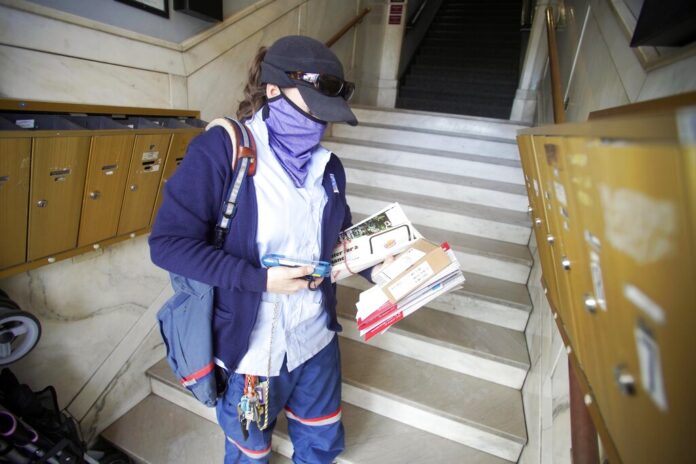Nisa Khan, Detroit Free Press
DETROIT — Robyn Sawyers was scanning a list of thousands of Christmas letters from U.S. Postal Service’s yearly Operation Santa, where people can read letters sent from low-income children and fulfill their holiday wishes.
A 3-year-old girl from Kentucky’s letter seeking Barbie dolls, the same kind as her daughter’s, caught her eye. But when Sawyer went to ship the new dolls, even before the USPS’ recommended deadline, she was told there was no way it would get to the girl before Christmas.
USPS is facing a historic volume of mail, which is swamping the postal service and other carriers as the pandemic drives people to shop online. According to the Washington Post, almost 19,000 of the agency’s 644,000 workers are under quarantine after testing positive for coronavirus. The shipping of the COVID-19 vaccine also may be impacting the speed of holiday deliveries.
And while some private carriers are turning away packages, USPS wrote in a statement to the Detroit Free Press that it is accepting “all volume” presented to them, which adds to their challenge of delivering during the holidays.
“I know she’ll get them eventually,” Sawyer said, adding she was unsure why she had to pay a mail fee and two-day shipping. “But I feel really bad to think that she’s going to be there and maybe not get anything when they had assured us several times that if we met by the 19th they would get there.”
Items her husband ordered for their small lawn business earlier this month also have not arrived.
“It’s just not going to happen for a lot of little kids that otherwise might not get anything else for Christmas,” Sawyers said. “I don’t know what’s going on with the Postal Service, but it just seems pretty unprecedented as far as experiences I’ve had.”
Sawyer shared her experiences on Twitter, joining thousands across the country using the hashtag #USPSdelays to discuss the slow deliveries during the holiday season.
Complaints included missing bills, medication and, now as Christmas approaches, lost presents.
Some are also criticizing Postmaster Louis DeJoy, who cut costs and did not run new policies by the Postal Regulatory Commission as Postmasters generally do, which led to delays. USPS also faced changes that slowed mail during the summer, a move a judge called “a politically motivated attack” that hurt the post office’s efficiency before the Nov. 3 election.
Indivisible Michigan, a progressive organization, sent out a tweet saying the slow deliveries were not the fault of post carriers.
“Your package isn’t going to make it on time,” the tweet reads. “Another failure of the Trump Presidency and Louis DeJoy defunding the post office.”
According to WXYZ Detroit, packages and mail are from “wall to wall” in an Allen Park facility, something one union leader has never seen before in his 30 years of working.
Keith Combs, American Postal Workers Union’s local president, said to WXYZ they reached out to leadership to prepare for season, but received no response.
“Postal employees are so diligent in what they do, and feel like they need to do a great job all the time, as they do,” Combs told the station. “I’m getting calls from my members and employees saying this is a problem, we need to be better. And again, they’re doing such a great job with trying to get this mail delivered. But it’s the people who are appointed over them that are not doing a great job in making sure that’s happening.”
The USPS said that it is facing pressure due to a “historic record of holiday volume this season.”
“This negative impact is compounded by the temporary employee shortage due to the COVID-19 surge, as well as ongoing capacity challenges with airlifts and trucking for moving this historic volume of mail,” it said.
“Amid the historic volume, the Postal Service continues to flex its network, including making sure the right equipment is available to sort, process and deliver a historic volume of mail and packages this holiday season. Our entire Operations team, from collections, to processing to delivery, worked throughout this past weekend and continues to work around the clock to address the historic volume.”




